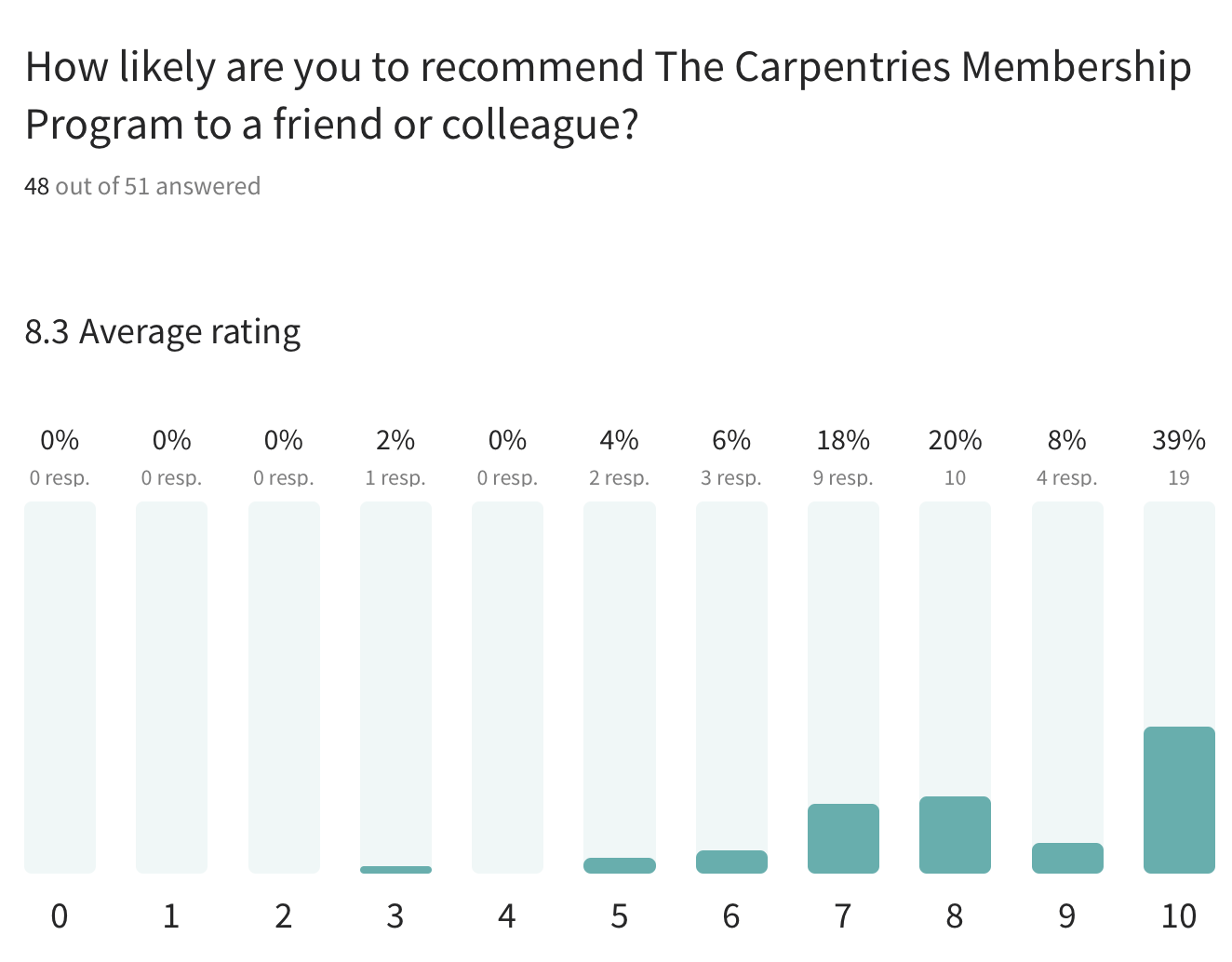Member Survey Results and the next Member Organisation Council Meetings
The Member Organisation Council Meetings held June 2019 were full of great conversation, questions and tips related to building local community around computational training using The Carpentries Membership. 34 representatives from 29 different Member Organisations worldwide joined four calls across three days and times to discuss all things Carpentries. We discussed the best format for regular instructor meetups, identifying local instructors, connecting to geographically local communities, the optimal number of instructors to meet training demand, and roles beyond that of instructor that facilitate workshop organisation, just to mention a few. For a more complete account, check out the meeting notes !
2019 Member Organisation Survey Results
The Carpentries was able to share some of the preliminary results of the 2019 Membership Survey at the June Member Organisation Council Meetings, which inspired discussion around what could be added to and improved about Carpentries Membership to better align with the growing and diversifying needs and goals of local communities everywhere. The final results of the survey echo both the preliminary results and Member Organisation Council discussions. The full report results can be found here. The net promoter score for the Membership Program is currently 8.3, as shown below. It is very exciting that so many organisations find the program at or above average satisfaction, but we can also see there is room for improvement!
 8.3 average rating under the question: How likely are you to recommend The Carpentries Membership Program to a friend or colleague?
8.3 average rating under the question: How likely are you to recommend The Carpentries Membership Program to a friend or colleague?
Both Member Organisation Council discussions and these survey results have shown that members are interested in a few key developments:
- support building and sustaining local communities,
- increased support for instructors and learners,
- curriculum development pathways, and
- a more varied membership model.
We also see that instructor training is key to achieving Member Organisations’ goals, and it will be very important to increase the capacity and quality of instructor training as the community grows. Member Organisations are also interested in identifying and enacting strategies to make their communities more equitable, inclusive and accessible.
Additionally, it is clear that Members like Carpentries Membership; they renew membership over multiple years and rate the program highly. This is a strong indication that this program is of value and should continue to be developed to fulfil the mission of The Carpentries.
It has been about five years since the first Carpentries Member Organisation came on board, and since then, this growing body of Members has supported The Carpentries, built local communities across the world, and contributed to many projects. Thanks to the responses to the 2019 Membership Survey, we have a clear idea of what this community wants and needs, and we can move forward to discussion of implementation!
November Member Organisation Council Meetings
For discussion and updates, join one of the next Member Organisation Council Meetings! Four meetings will be held across time-zones November 18th-19th, 2019. Sign up on the Etherpad and [add the event to your calendar] (https://calendly.com/ecwilliams8/member-organisation-council-meetings-nov-2019)!
Since the primary goal of the Member Organisation Council is to hear and learn from other organisations, please add your name to the list of speakers for a meeting and give an overview of your program, an update on your progress, or a review of a specific tool or system that has worked for you. The meeting agenda will also include updates from The Carpentries and time for general discussion.